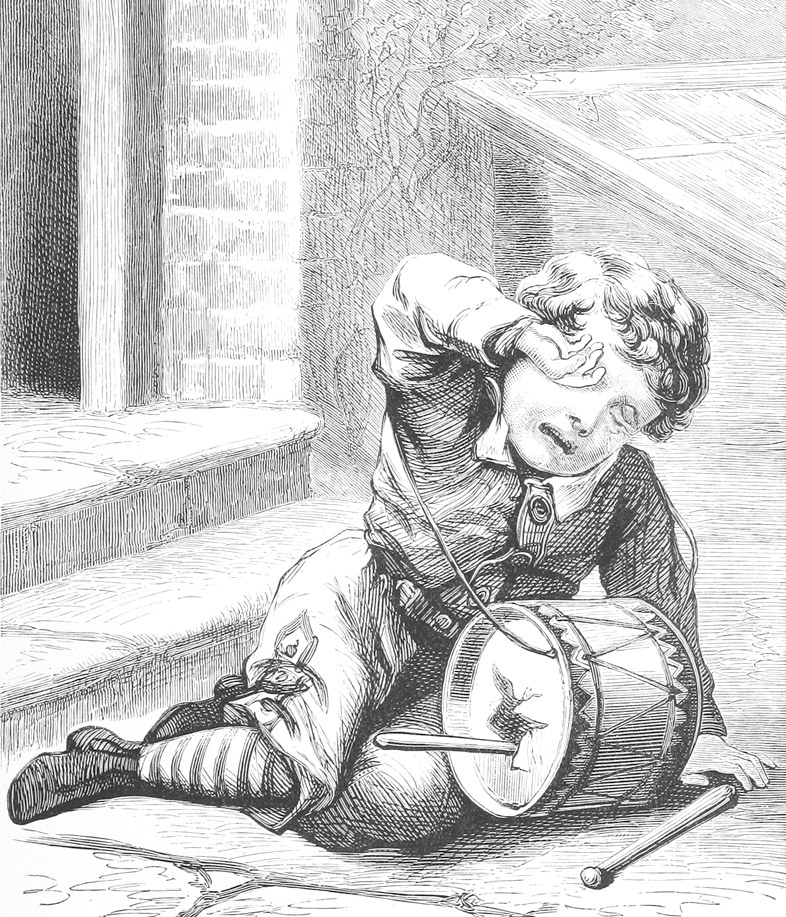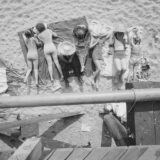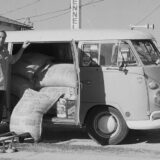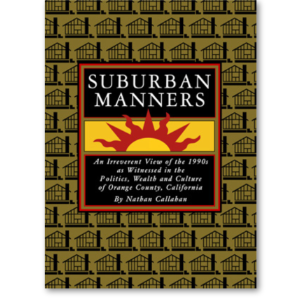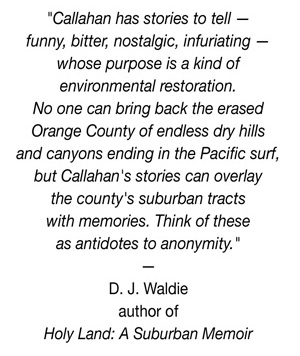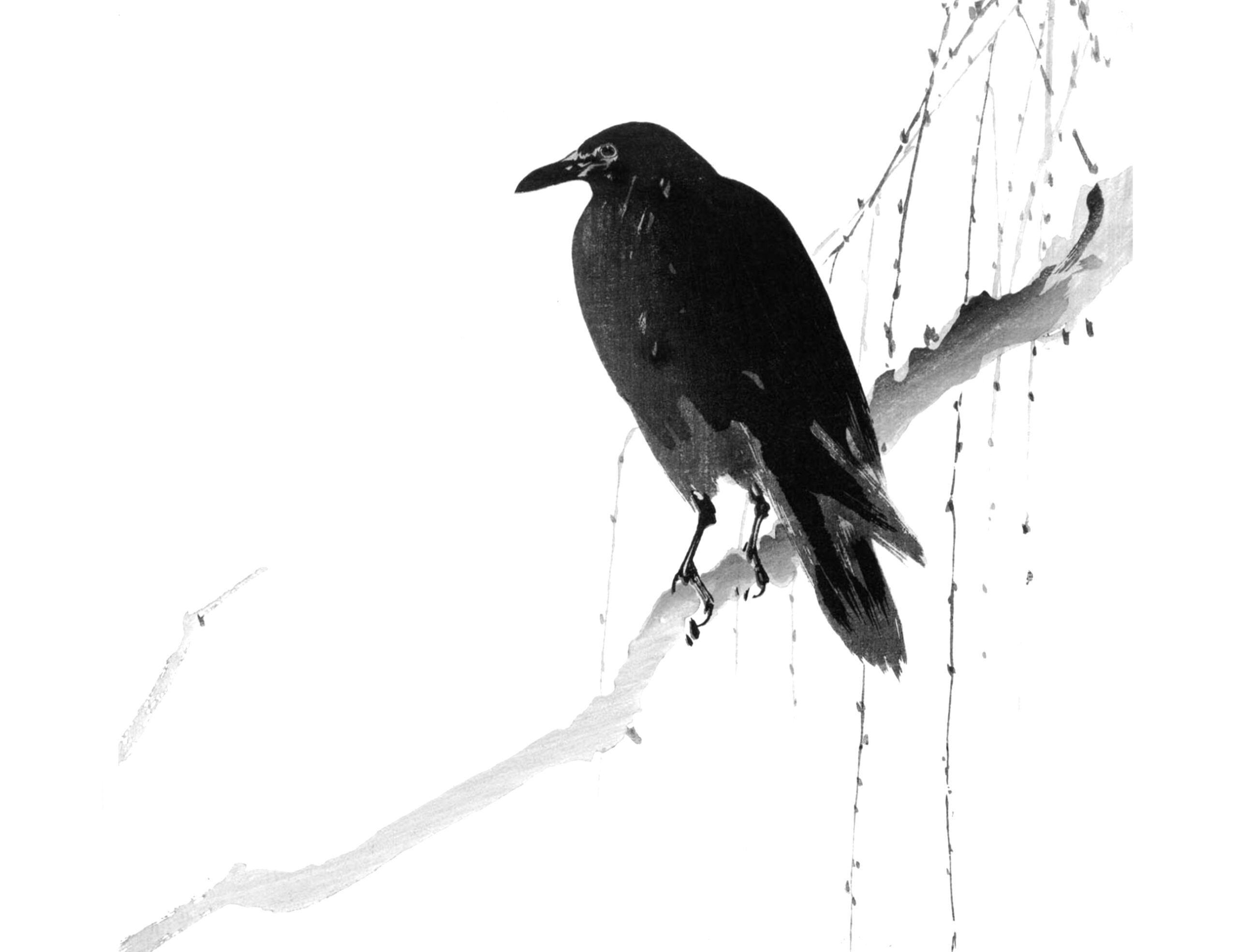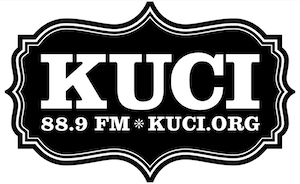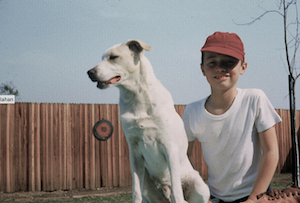I am not myself today. It isn’t because I am awash in all variety of ruination — that my 17 year-old dog, Luna, died in my arms last Wednesday or that my 100 year-old senile grandmother — of whom I am the only grandchild — called me Herman (her long deceased brother’s name), and told me to milk the cows (I consented, hundreds of miles from the nearest bovine utter). And it isn’t because Saturday, just after the earthquake, I crashed a 1,600 name data base or that my career, a phenomena that was once described as “rocketing,” has blown an O ring. Or even because the latter circumstance prompted several of my prozac-addled friends to elevate my anxiety with cheery smiles and assurances that I am in the throes of a mid-life crisis at the super nova stage, and should seek therapy, pills, or both.
These things are tenuous. Like Casablanca’s Rick I recognize a hill of beans when I see one. Careers come and go, as do mental states and temblors. What is the focus of my disquietude, what was the crux of my distress, what is bothering me more than anything else is Dylan.
Dylan, an eleven-year-old, who was named in a folk-rock fit of passion is, simply put, a spoiled little puke. He creates messes that he has no intention of cleaning up. He defies his parents who have developed the New Age, brain-heavy, limp-spine approach to child-rearing. He purposely torments his seniors with selfish and outlandish requests. He laughs in their faces when they grovel to fulfill his wishes.
Dylan rules and he knows it. And the reason Dylan rules is not because he is more intelligent or stronger, or has more money, power, or leverage. The reason Dylan rules is because he is a child.
David, his father, is genteel… middle-aged… intellectual. One of the goals of his life — a goal he shares with his wife Melissa— is to create the perfect human. These altruistic Dr. Frankensteins, both professors at the University of California, have substantial incomes, and are admired community-wide as hard-working, civic-minded and perceptive. But they live in a black hole when it comes to the relationship they have with their son, Dylan.
Personally, I never cared for the little beast, but my niece likes to play with him, so I endure. Today, however, is different. I’ve changed. In this hot and shaky terrain I’m prepared to take my stand. Inspired by all things dark and dangerous I feel ennobled. I feel like an adult.
Today, after a very enjoyable two-hour conversation — Offspring and Sugar Ray, Mirror Ball and Stan Kenton, Van and Jim Morrison; acid house and acid rain; John Wayne and Gacey. David and I stroll into the living room. He gently tells Dylan that it is time to stop playing — time to go home for dinner. Dylan, however, who is playing at the X-box, objects. He has another plan…and a means to accomplish it.
First there is the body language — the disgruntled exhalation of air, the tossing of arms to his side; next, the fierce look, eye-to-eye with his father, lips curling back.
Then, out it comes.
“No,” he says. “No” in a seditious eleven year-old brat way. “No” like I’ve heard him say hundreds of times. It’s a “No” that I feel in the pit of my stomach.
After punctuating his defiant glare, Dylan turns around, completely ignoring his father, and continues play.
With a shrug of his shoulders, David laughs nervously and gives me the ironic “What can you do?” eye roll.
To be without innocence is to want to be everything without ceasing to be ourselves.
A spark arcs across uncharted territory. I sing the body electric woke in revelation ten times more absolute than post-migrane clarity.
“Go home, Dylan,” I say firmly.
“Why?” he barks back.
The room is still — a perfect moment.
“Because,” I say, “You’re done.”
And he is.
David and Dylan leave in their own discomfort.
I’ve been told that Dylan is in the midst of developing his personality. That soon his persona will be locked in place; that if something unnatural occurs during his development — before that blessed point in his life that freezes his personality (a point that, according to lore, I passed over a half-century ago) — his only escape will be years of psychiatric treatment.
Well-respected, academic, child-rearing authorities address this doctrine of confined development in Zen all-knowing, all-seeing seriousness. They ordain the religion of a life lived looking backwards — always defining potential with recollection.
Give Dylan lots of space, room to grow. His bad behavior should be ignored, and praise should be lavished on him. If all goes well he will grow up uncluttered, non-dysfunctional, a model of creative prowess. If all goes well, he will look back on his childhood as the wellspring of all he is and all he will become.
But David’s wellspring is now and he is being cheated by Dylan. Outside of work, everything he does, every place he goes is based on whether or not Dylan can go there too. There are little league games and swim meets and guitar lessons and parenting classes and the latest animated film classic and math tutors and drawing classes ad infinitum.
Like millions of other well-meaning young upwardly-mobile urban professional do-gooders David is afraid to be disliked by his children. He’s afraid that in that moment of confrontation and denial the child’s innocence will be lost. And so it should be.
To be without innocence is to want to be everything without ceasing to be ourselves — a mystic secret, worth keeping. One that I won’t waste on the little beasts.
— Nathan Callahan
